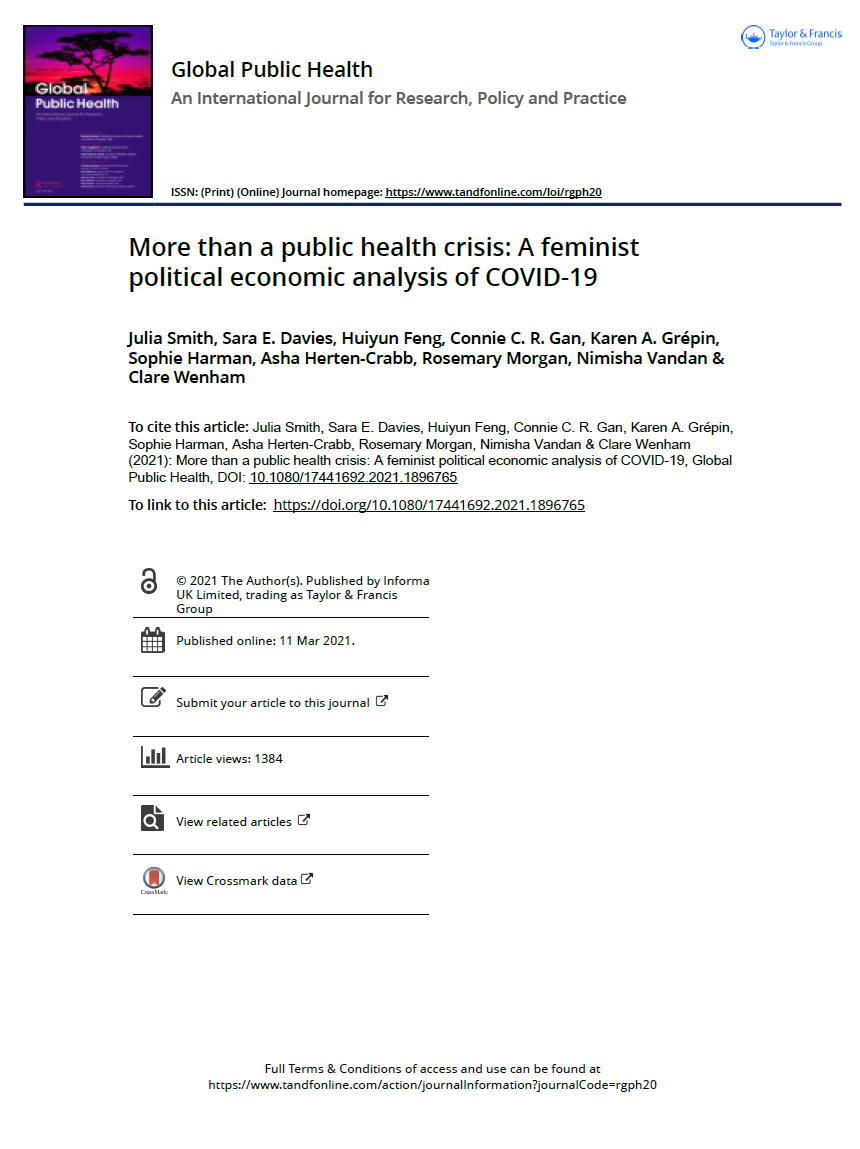Gender norms, roles and relations differentially affect women, men, and non-binary individuals’ vulnerability to disease. Outbreak response measures also have immediate and long-term gendered effects. However, gender-based analysis of outbreaks and responses is limited by lack of data and little integration of feminist analysis within global health scholarship. Recognising these barriers, this paper applies a gender matrix methodology, grounded in feminist political economy approaches, to evaluate the gendered effects of the COVID-19 pandemic and response in four case studies: China, Hong Kong, Canada, and the UK. Through a rapid scoping of documentation of the gendered effects of the outbreak, it applies the matrix framework to analyse findings, identifying common themes across the case studies: financial discrimination, crisis in care, and unequal risks and secondary effects. Results point to transnational structural conditions which put women on the front lines of the pandemic at work and at home while denying them health, economic and personal security – effects that are exacerbated where racism and other forms of discrimination intersect with gender inequities. Given that women and people living at the intersections of multiple inequities are made additionally vulnerable by pandemic responses, intersectional feminist responses should be prioritised at the beginning of any crises.
This website uses cookies so that we can provide you with the best user experience possible. Cookie information is stored in your browser and performs functions such as recognising you when you return to our website and helping our team to understand which sections of the website you find most interesting and useful.






